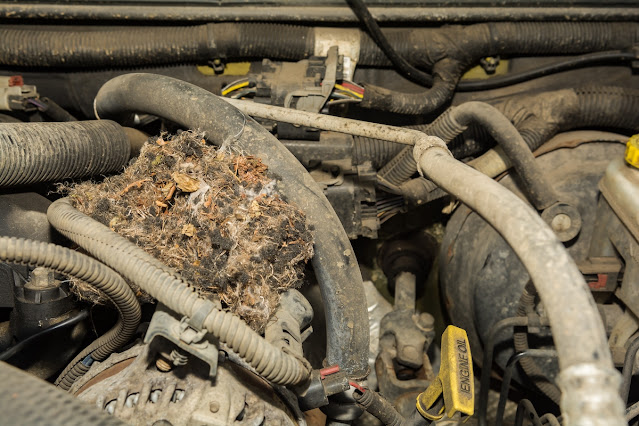Whether you have just one or a whole family of spiders living in your car, your first reaction is probably one of utter disgust, and your next is probably to figure out how to get them out of there as quickly as possible. And you'd be right - it's critical to get rid of spiders in your car before they lay eggs and become an even bigger (and more expensive) problem. Toyota of Orlando is here with easy tips on how to get spiders out of your car (and save your sanity).
Get spiders out of your car
Florida is a beautiful place to live - we've got beaches, lots of sunshine, and unfortunately, lots of spiders. And spiders love taking residence in your car because it's warm, dry, dark, and a great place to both hide from predators and lay their eggs in safety. Here's how you can get spiders out of your car and reclaim your territory.
- Clean your car ASAP. If you have crumbs and dirt in your Orlando Toyota, you're attracting bugs. And because spiders eat bugs, you're basically hosting a buffet for them. Vacuum and wipe the interior of your vehicle and clean any stains or sticky spots from spills to discourage bugs from hanging out. Further, dig around and look for spider eggs and webs and vacuum them out, too.
- Try spider repellant. This spray can be found at your local home improvement store (like Lowes or Home Depot); you can spray it around your car, especially in hiding spaces where you think spiders may be hanging out like under seats, your trunk, and in your glovebox or center console.
- Spider traps may also work. These traps are sticky and emit pheromones that attract spiders, similar to roach traps.
- Look into a chlorine bomb to set off in your car to kill all the spiders in there as a last resort. Be sure to carefully follow instructions and move through the process as safely as possible.
If none of the above work, you may need to contact professional exterminators to give you a hand. Don't just ignore it; spiders lay eggs fast and you could end up dealing with a major infestation in no time.
Prevent spiders in your Orlando Toyota
The best offense is a good defense, right? Check out these Toyota of Orlando tips for KEEPING spiders out of your car in the first place.
- Keep it clean - the less dirt and debris, the fewer bugs, which means fewer spiders. (No all-you-can-eat buffet.)
- Keep it decluttered. Clutter provides hiding spaces for spiders, so keep your backseat, trunk, etc. clear of anything unnecessary.
- Spritz your vehicle with essential oils. Spiders are naturally repelled by citrus, cedar, peppermint, rosemary, and lavender. Mix a few drops of oil into a spray bottle of water and spritz your vehicle - it'll also smell great.
- Keep your doors and windows closed when you're not in your car. Also, make sure door seals, window seals, trunk seals, and sunroof seals are all in good condition.
- Don't park next to construction sites, heavily wooded areas, or dumpsters.
Want more tips on how to get spiders out of your car? Call Toyota of Orlando's service center experts today. We're open seven days a week at (407) 298-0001 and we're located just off I-4 across from the Millenia Mall.



